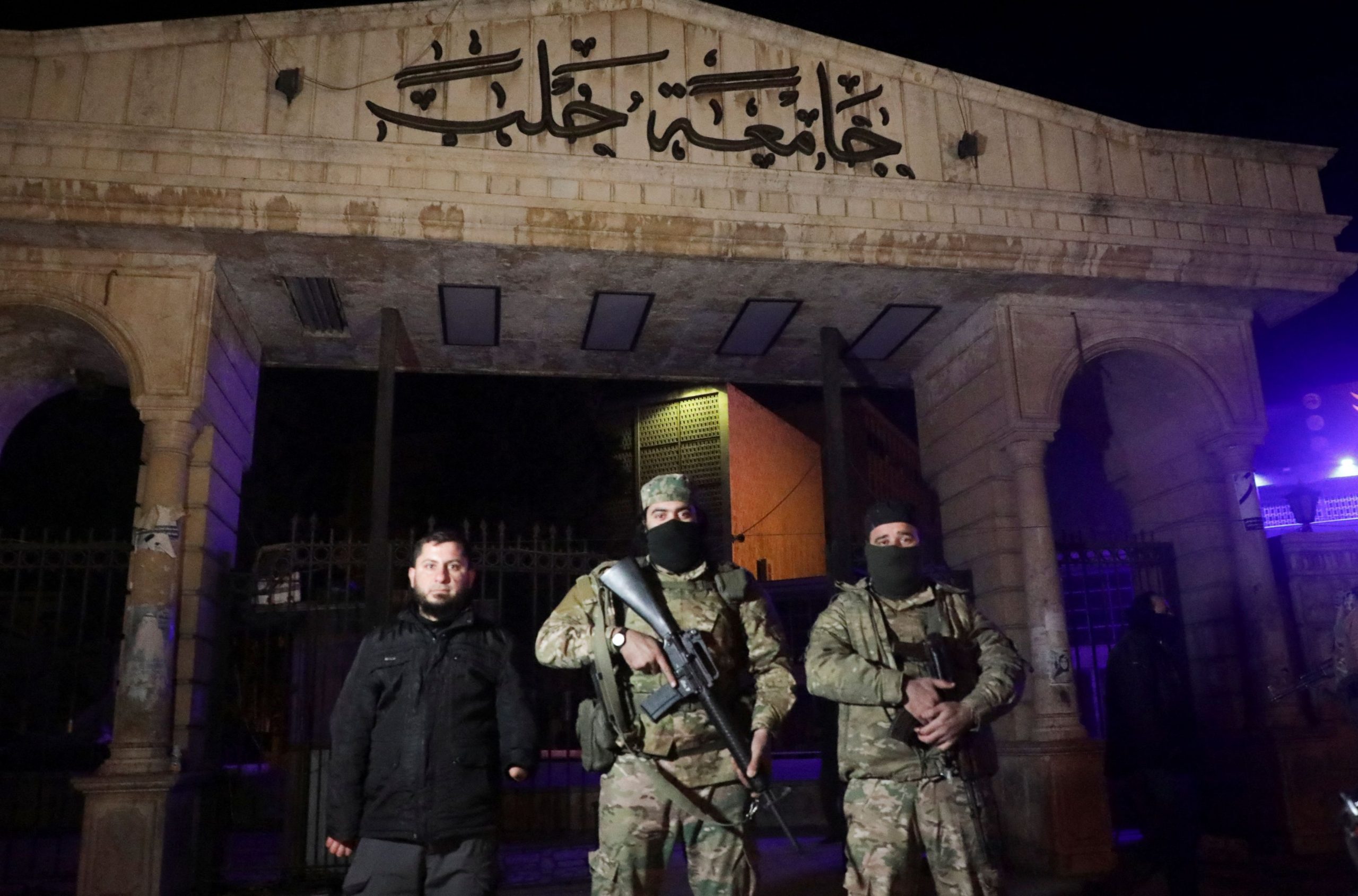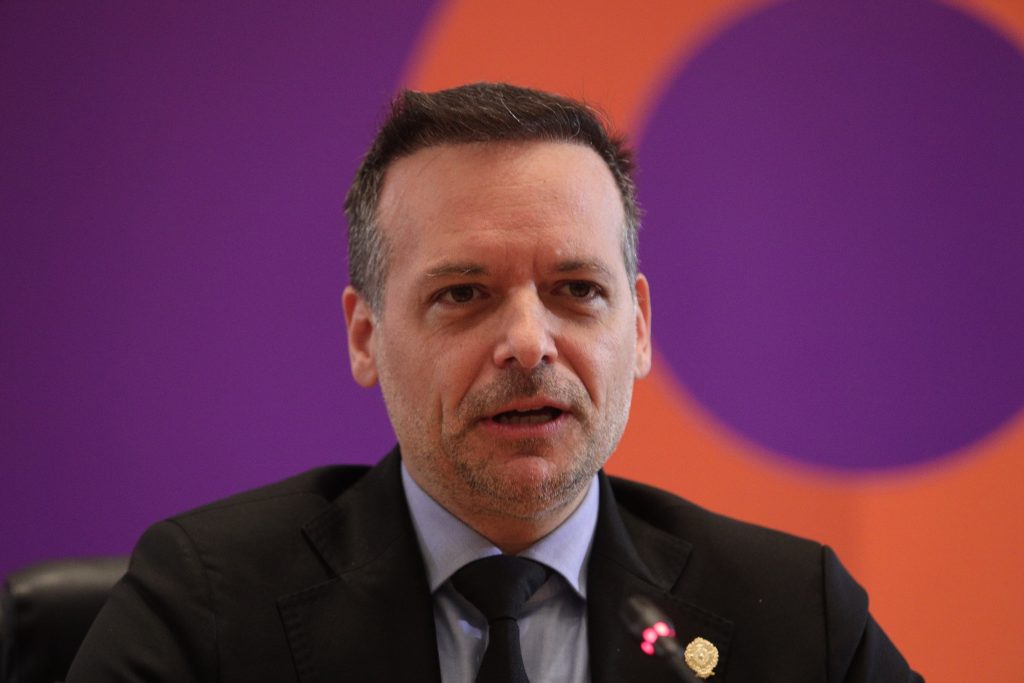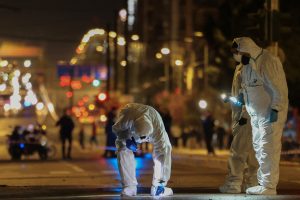It had taken the Syrian regime and its backers—Iran, Russia and Hezbollah—more than four years to dislodge rebel forces from the country’s second-largest city of Aleppo. At the time, in 2016, they celebrated that victory as the turning point in Syria’s civil war.
Now, a surprise rebel offensive has recaptured Aleppo in just a few days , including parts of the city that the Syrian army had never surrendered before. This stunning feat is the direct consequence of new wars that have erupted outside Syria’s borders.
“It’s a tectonic shift,” said Andrew Tabler, a senior fellow at the Washington Institute for Near East Policy who served as Syria director in the Trump White House. “Regional and international powers intervened in Syria over a decade ago, and now the conflicts of Ukraine, Gaza and Lebanon all come together and overlap in Aleppo.”
Lebanon’s Hezbollah militia, Russian President Vladimir Putin and the Iranian ayatollahs’ regime are all currently embroiled in conflicts that threaten their very survival, and in which Syria is a sideshow at best. To a varying degree, all three have sustained strategic blows—while the Syrian rebels’ main backer, Turkey, has taken advantage of the turmoil.
“Russia is weakened, Iran is weakened, Hezbollah is beaten—and all this has created an enormous opportunity for Turkey, which it was quick to grab,” said Asli Aydintaşbaş, a Turkey specialist at the Brookings Institution.
At the very least, the latest developments will stem the flow of Syrian refugees into Turkey , a significant political problem there. Depending on how fighting develops in the coming weeks and months, the fall of Aleppo could also give Ankara a dominant role in Syria’s future—not necessarily a prospect that Israel would relish.
Syria’s President Bashar al Assad tried his best to keep a low profile ever since the Oct. 7, 2023, attack by Hamas turned into a regional war between Israel, Iran and Iranian proxies. Yet, that maneuvering—including a recent rapprochement with Gulf monarchies that once funded the rebels—didn’t prevent Assad’s regime from getting embroiled in the maelstrom that is reshaping the Middle East.
Hailed as a miracle in videos posted from Aleppo’s ancient citadel, the city’s fall on Friday night exceeded the Islamist-led rebels’ wildest expectations. Now, after the regime’s army collapsed or fled, other offensives are under way. Fighting in coming days will show whether the Syrian military will be able to regroup and counterattack—or will continue a chaotic retreat from other major population centers.
The most important factor behind Assad’s loss of Aleppo is the rout inflicted by Israel on Hezbollah. Equipped by Iran and Russia, the Lebanese militia used to be the most capable infantry fighting on Assad’s behalf, and was instrumental in rolling back rebel gains in the past.
But, in October last year, Hezbollah’s leader Hassan Nasrallah made a strategic mistake, joining the war against Israel that was kicked off by Hamas. As the Lebanese militia redeployed its weapons and forces from Syria to fight Israel, in what it believed would be a carefully calibrated campaign, it suffered nothing short of a military catastrophe.
In recent months, Israel killed most of Hezbollah’s senior leadership , including Nasrallah himself, decimated the militia’s ranks and destroyed its weapons caches in southern Lebanon and south Beirut. Following a ground invasion, Israel has forced Hezbollah, which had pledged to keep fighting until a full Israeli withdrawal from Gaza, into a separate cease-fire.
“Hezbollah is crippled,” said Navvar Şaban, a researcher on Syria at the Harmoon Center for Contemporary Studies in Istanbul. “This has created a huge vacuum. Though there were regime forces located in Aleppo, they were not trained, they lacked military discipline, they lacked tactics and even their retreat plan was a disaster.”
Since the Gaza war began, Iran, too, has lost some of its top Revolutionary Guard commanders in Syria and Lebanon to Israeli airstrikes. Instead of projecting strength, Iran’s retaliation against Israel—the first direct missile exchange between the two countries—resulted in the Israeli bombing of Iranian air defenses and weapons-production facilities. This was a blow to Tehran’s military power and political prestige alike.
For Russia, the 2015 intervention to rescue Assad’s regime was advertised as a major geopolitical triumph that displaced the U.S. as the Middle East’s sole dominant power. Then came the 2022 invasion of Ukraine, which instead of a quick victory expected by Putin has turned into a bloody war of attrition. Regular Russian forces have taken hundreds of thousands of casualties and lost several thousand tanks and fighting vehicles since then. The Wagner paramilitary group, which had played a critical role in Syria, has been destroyed, its leadership killed in the wake of last year’s failed putsch against Putin.
The Russian air force, indispensable for the survival of Assad, hasn’t been as degraded as Russian ground troops in Ukraine, but it too has lost a significant part of its firepower and operates at a fraction of its former strength in Syria. According to open-source analysts at the Oryx consultancy, some 117 Russian warplanes were destroyed in nearly three years of the Ukrainian war, and 15 more damaged.
While the Russian air force carried out a series of bombing runs in Syria in recent days, these strikes were limited and didn’t do much to halt the rebel advances. “The Russians are very, very busy in Ukraine, and that’s a big part of it,” said Mouaz Moustafa, executive director of the Syrian Emergency Task Force, a group that advocates for democracy in Syria. “Thank God for the Ukrainians.”
The current rebel offensive in Aleppo was led by the Hayat Tahrir al Sham, or HTS, an Islamist militia coalition that enjoys Turkish backing. Its key leaders include Islamist fighters once associated with the Nusra Front, a one-time Syrian affiliate of al Qaeda. Though the HTS leadership has publicly disavowed al Qaeda, the group remains classified as a terrorist organization by the U.S. government. Unlike the rebel forces of a decade ago, HTS units involved in the current offensive appeared well-trained and well-armed. They also heavily relied on the drone technology that has been developed during the war in Ukraine.
In an effort to avoid the mistakes of the past and project the image of moderation, HTS military commander Abu Mohammad al Jawlani urged his Sunni Islamist followers to avoid harming Shiites and other minorities, and to maintain order in the city. “Aleppo has always been—and remains— a meeting place of civilizations and cultures, with a long history of cultural and religious diversity,” his edict said.
While the HTS rebels—and their Turkish patrons—benefited from the Israeli strikes on Hezbollah and sites in Iran and Syria, the timing of the Aleppo offensive was likely tied to the cease-fire just reached in Lebanon.
“The militants have been ready for a while. And my guess is it’s the Turks who have been holding them back,” said Robert Ford, a former U.S. ambassador to Syria and a fellow at the Middle East Institute. “But now, once the Lebanon cease-fire is done, the attack on Aleppo doesn’t look anymore like Turkey fighting an enemy of Israel.”
Turkish President Recep Tayyip Erdogan has been among the most vociferous critics of Israel, hosting leaders of Hamas and curtailing trade and diplomatic ties with Israel after tens of thousands of Palestinians were killed by Israeli forces.
Still, the Aleppo offensive was seen with satisfaction, if not outright gloating, by many in Israel. “It’s a net positive for Israel,” said Nadav Pollak, a former Israeli intelligence official who teaches at Reichman University in Israel. “The Iran-Hezbollah-Syria axis suffered heavy blows in recent months, and this adds another significant blow, which forces all members of the axis to focus on another theater that is not Israel.”
As for Russia, the rebels entering Aleppo quickly appealed to Moscow to reconsider its role, and its interests, in Syria. “The Syrian revolution has never been directed against any nation or people, including Russia,” said a statement by the HTS-led rebel administration. “It is not a party to what is happening in the Russo-Ukrainian war.”
At the same time, the rebels—whose ranks include Russian-speaking Islamists from the Caucasus and Central Asia—posted online videos of themselves killing Russian soldiers in the outskirts of Aleppo and tearing down portraits of Putin in Syrian government offices.
Write to Yaroslav Trofimov at yaroslav.trofimov@wsj.com



